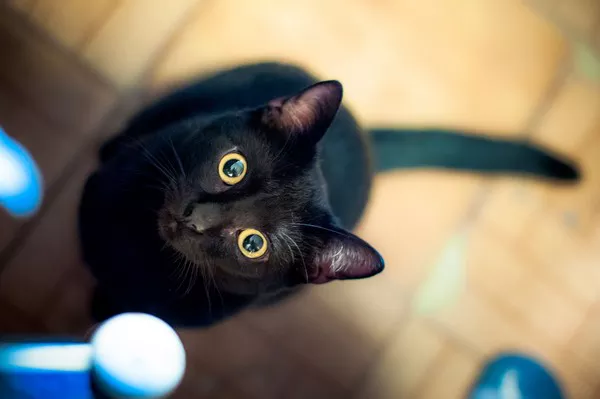With Mother’s Day approaching on March 30, Cats Protection is issuing an important reminder to cat owners about the dangers of lilies and advising them to contact a veterinarian if they suspect their cat has come into contact with these flowers.
The warning comes after a regional volunteer for the national feline charity shared her own alarming experience. Lynne Meredith explained that she was unaware of the risks associated with lilies before joining the charity. She received a bouquet from a friend that included lilies, but it wasn’t until her cat, Malakai, knocked over the vase and became covered in pollen that she learned how dangerous the flowers can be to cats.
Lynne recalled, “He was startled from pulling the vase over and getting covered in water and pollen, so he came running to me. I quickly googled what I could use to get the pollen off him because it’s so hard to remove from most surfaces, and to my horror, I found it was toxic to cats.”
Lynne immediately took action by washing Malakai thoroughly, using a buster collar to prevent him from licking the pollen off, and contacting the vet for advice. Fortunately, Malakai did not ingest any of the pollen or other parts of the plant. The vet instructed Lynne to monitor him closely and take him to the clinic immediately if any symptoms such as vomiting or diarrhoea appeared.
As a result of this experience, Lynne is now spreading the word about the dangers of lilies to ensure no other cats are harmed by the flowers. She said, “I’ve told all my friends with cats to make sure they never have lilies in the house or garden and cannot believe flower companies aren’t required to ask whether bouquets are being sent to a household with cats during checkout. Something so simple would prevent cats from unnecessary danger, suffering, and even death.”
While lilies are known to be one of the most toxic plants to cats, Cats Protection also advises cat owners to be cautious with other flowers such as tulips, daffodils, iris, and peonies. These flowers can be poisonous to cats if ingested, with symptoms including excessive salivation, vomiting, diarrhoea, seizures, and difficulty breathing.
Related Topics
























